Introduction to Digital Transformation in Gaming
The 21st century is characterized by digital transformation, which is reshaping economies and industries worldwide. In Uganda, the gaming industry is a prime example of the potential and challenges of this transformation. Despite its rapid growth, Ugandans remain largely consumers of gaming technologies, with foreign companies dominating the innovation and infrastructure in the sector.
The Current State of the Gaming Industry in Uganda
The gaming industry in Uganda is growing rapidly, but it is largely driven by foreign companies. These companies bring in investments and expertise, but they often lack mechanisms for knowledge transfer, which limits local capacity building. As a result, much of the revenue generated by the industry exits the local economy, with few sustainable skills or technologies left behind. It is estimated that software providers alone earn over Shs100 billion annually from Uganda’s gaming industry.
Vision for a Local Gaming Industry
The National Lotteries and Gaming Regulatory Board (NLGRB) has a clear vision for the gaming industry in Uganda. The board wants to stimulate local innovation and inclusive economic development by prioritizing innovation in its strategic plan. The plan focuses on stimulating ICT growth, nurturing local talent, and fostering partnerships between Ugandan institutions and global leaders in tech.
Partnerships and Collaborations
To achieve this vision, the NLGRB proposes making local collaboration a regulatory requirement for foreign companies operating in Uganda. This means that foreign companies must partner with local firms or academic institutions to develop transferable skills and create local jobs. Such partnerships can also help adapt technology to Uganda’s market and ensure that it is used responsibly.
The Role of the National ICT Innovation Hub
The National ICT Innovation Hub can play a key role in transforming the gaming industry in Uganda. The hub can facilitate joint innovation labs where Ugandan developers build solutions using open APIs from global gaming companies. This can help develop local capacity and create innovative solutions that are tailored to the African context.
Government Support
To fuel this transformation, government support is critical. The government can introduce tax incentives for local gaming tech development, establish special economic zones for digital innovation, and launch entrepreneurship and upskilling programs focused on gaming technology. This can help create a conducive environment for local innovation and development.
New Training Pathways
New training pathways should be introduced to equip locals with the necessary skills to drive the gaming industry forward. These pathways can include game machine engineering, game design and development, electronic repair, data analytics, and AI applications for responsible gaming. These skills are essential not just for industry growth but also for ensuring ethical, fair, and responsible participation.
Success Stories
There are already success stories in the local gaming industry. For example, Kola Studios’ "Matatu" mobile game gained over 200,000 downloads in its first year. This shows that culturally relevant, locally developed games have strong market potential. With more investment, Uganda can replicate and scale such successes.
The Role of AI and Big Data
The role of AI and big data in transforming the gaming experience cannot be overstated. Ugandan developers and data scientists can create apps that analyze large volumes of player data to predict outcomes, enhance gameplay, and support responsible gaming. This can help drive innovation and growth in the industry.
Blockchain Technology
Blockchain technology holds immense potential to improve transparency, security, and fairness in gaming transactions. It can secure payment systems, authenticate user identities, and verify game fairness through transparent algorithms. This can help build trust and streamline cross-platform interoperability.
Regulatory Oversight and Governance
Digital transformation is equally vital for regulatory oversight and governance. The NLGRB has adopted modern tools such as the National Central Electronic Monitoring System and machine registration systems to enhance real-time monitoring, data collection, and compliance enforcement. These systems allow for the detection of irregularities, addressing problem gambling, and enforcing industry-wide standards.
Interdisciplinary Research and Innovation
The gaming industry in Uganda can also become a center for interdisciplinary research and innovation. Institutions of higher learning can integrate gaming regulation, ethics, and public health into academic programs. This can drive evidence-based policymaking and enhance public understanding of gaming’s social and economic impacts.
Conclusion
The gaming industry in Uganda is standing at the intersection of regulation, innovation, and digital opportunity. If strategically harnessed, digital transformation can shift Uganda from a market of passive tech consumers to an ecosystem of active innovators, regulators, and exporters of gaming innovation. Collective action is needed from the government, academia, private sector players, and foreign investors to achieve this vision. With bold vision and coordinated efforts, Uganda can redefine its role in the global gaming economy, unlocking jobs, revenue, skills, and global recognition.



